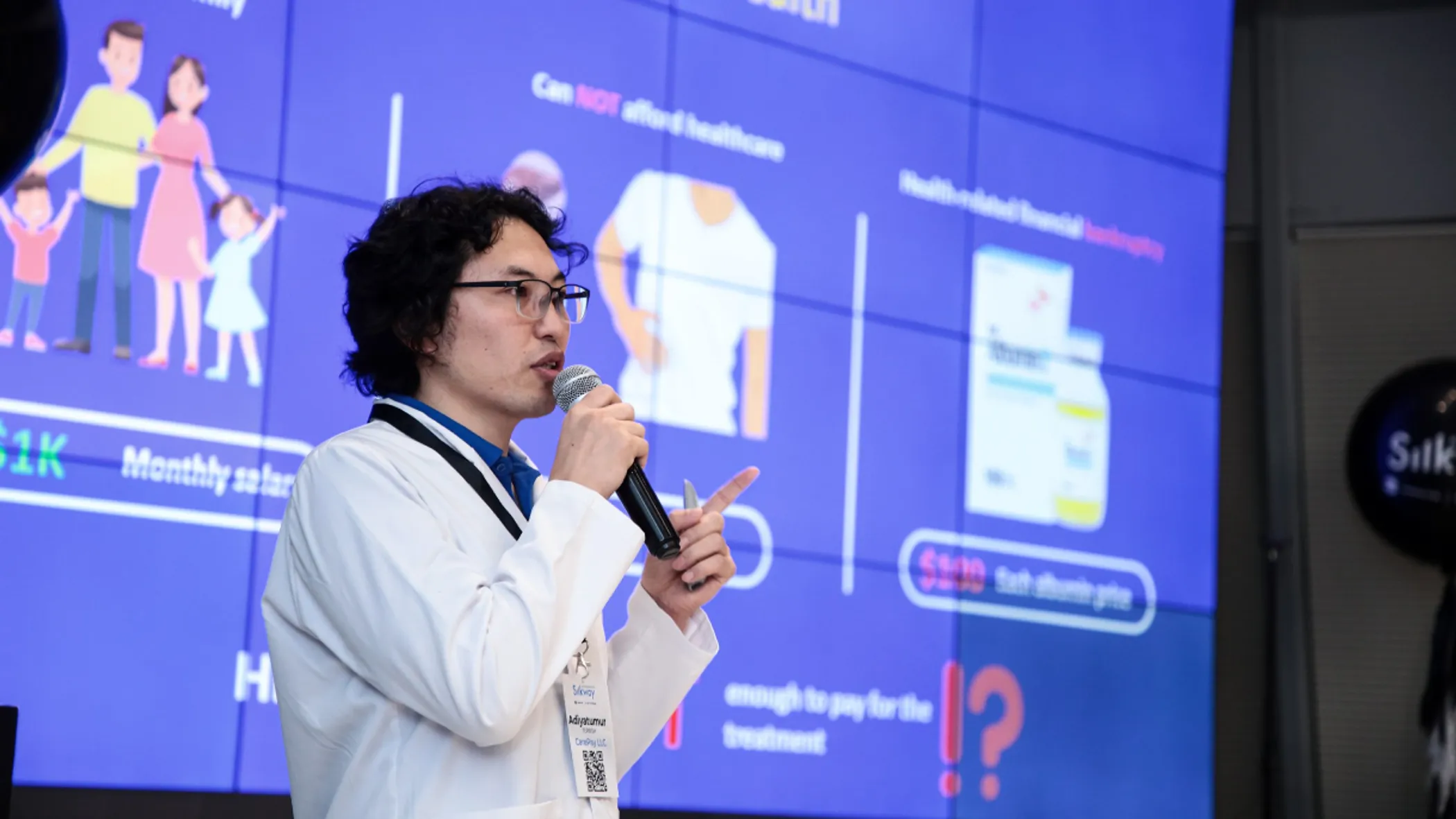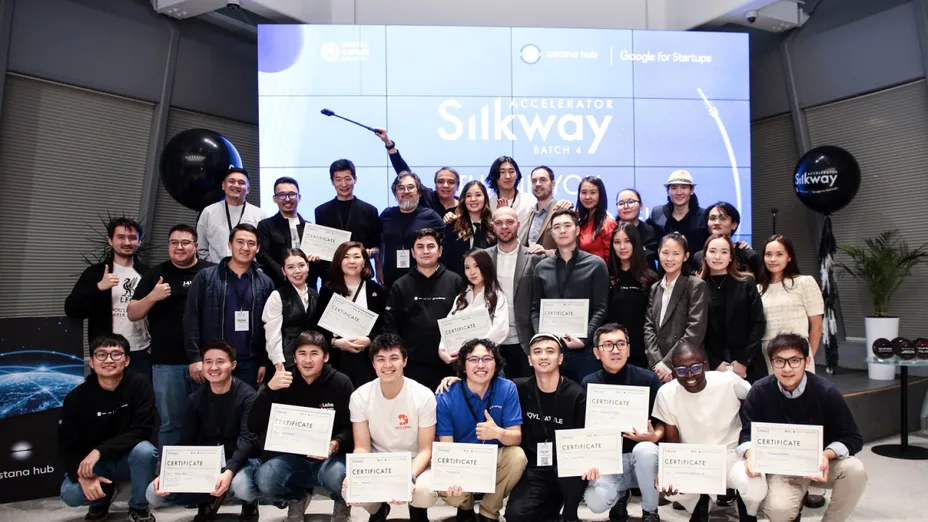The fourth batch of Silkway Accelerator—a joint accelerator program of Astana Hub and Google for Startups—graduated, cumulatively attracting $450,000 worth of investments, signing agreements for $150,000, and increasing the projects' Monthly Recurring Revenue by 4.7 times, QazMonitor reports citing the press service of Astana Hub.
This batch received 197 applications from startups in seven countries. Of these, fifteen projects from Kazakhstan, the Kyrgyz Republic, Georgia, Nigeria, Mongolia, Tajikistan, and Uzbekistan were selected to participate in the 12-week intensive program.
Magzhan Madiyev, CEO of Astana Hub, mentioned plans to achieve $1 billion in IT exports by 2026. He said that similarly to the hub-facilitated five-week intensive program at the Draper University campus in Silicon Valley, there are plans to establish a similar initiative in the MENA region. This should facilitate the entry of local startups into these markets.
"As of the end of the fourth Silkway Accelerator batch, 49 startups have entered international markets. The aggregate valuation of these companies is $250 million, with Monthly Recurring Revenue reaching $2.2 million. During the acceleration, they raised $8.1 million," said Madiyev.
Among the fourth batch was Zebra Eye, a MedTech startup that has developed AI software for the diagnosis of eye pathologies based on the analysis of medical scans. The company received $200,000 in commitments from private investors during the program.

"Through our participation in the program, we have not only addressed issues within the project itself but also with our staff. This transformation will have more evident results in the long term. Currently, we have established partnerships with government agencies, found ways to enter the private clinic market, and garnered interest from the largest chains of multi-specialty clinics throughout the country," shared ZebraEye CEO Yana Ten.
Other Kazakh startups include Aqyl Battle, a mobile quiz game with over 600,000 registrations and 30 million games played; educational app OILA, which assists in treating gadget addiction among children; an automation platform for system integrators and managed service providers called Python RPA; Arlan Biotech, featuring an AI-based nanobody generation and manufacturing technology that is faster and cheaper than any other available today; and Tastamat, which offers a self-service parcel storage network.

Startups from Mongolia include CarePay, which offers fintech solutions to ensure equal, accessible, and affordable healthcare services; Metacog Metrics which provides an indirect soft skills assessment system using game mechanics to improve recruitment efficiency and reduce turnover in companies; and Metaland which brings together all real-world communications and services.
Additionally, the Uzbek startup Dalatek introduced its version of ‘Amazon for fruit and vegetables’, while the Kyrgyz startup Mystory innovates with fairy tales created by artificial intelligence, where the client becomes the main character.













